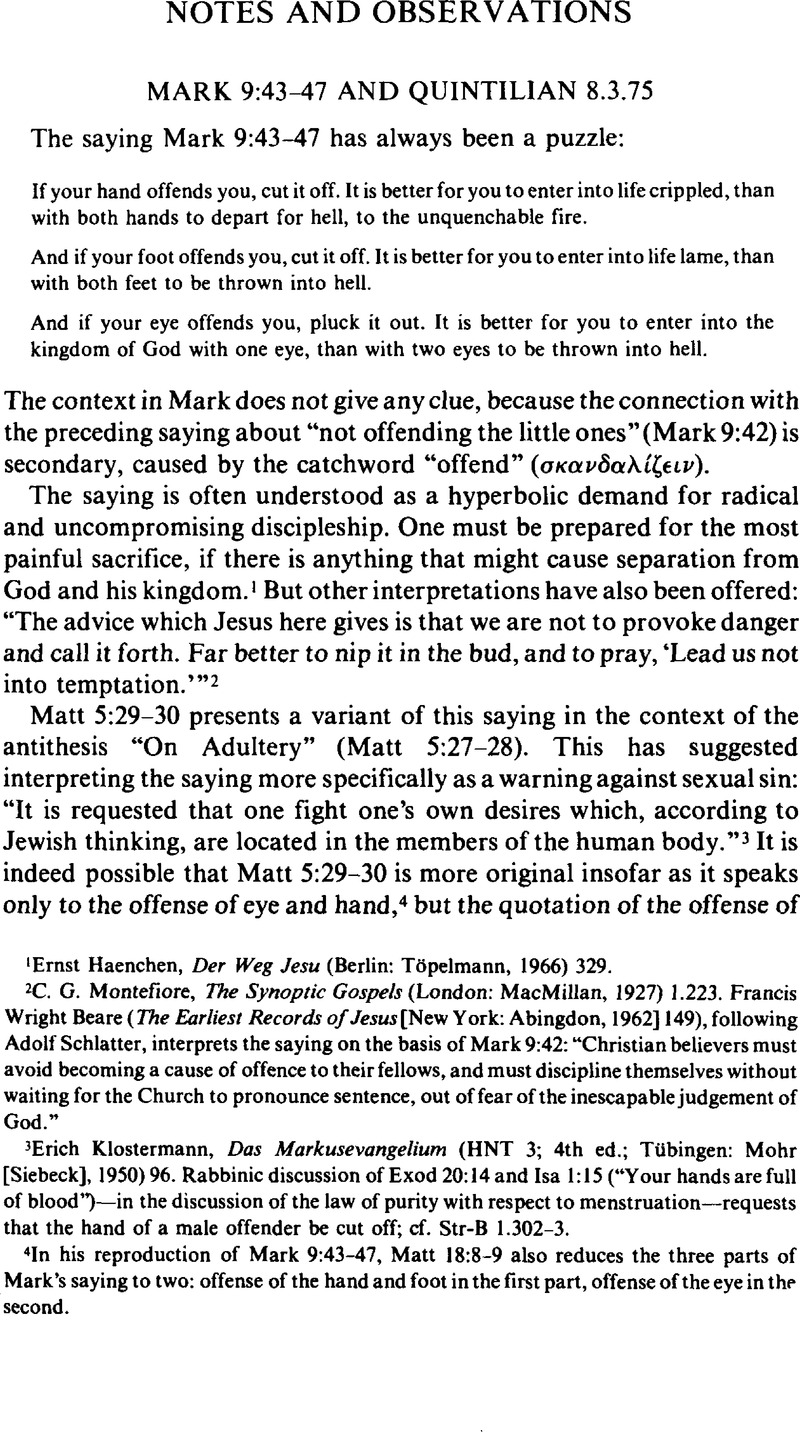Article contents
Mark 9:43–47 and Quintilian 8.3.75
Published online by Cambridge University Press: 10 June 2011
Abstract

- Type
- Notes and Observations
- Information
- Copyright
- Copyright © President and Fellows of Harvard College 1978
References
1 Haenchen, Ernst, Der Weg Jesu (Berlin: Töpelmann, 1966) 329Google Scholar.
2 Montefiore, C. G., The Synoptic Gospels (London: MacMillan, 1927Google Scholar) 1.223. Francis Wright Beare (The Earliest Records of Jesus [New York: Abingdon, 1962] 149), following Adolf Schlatter, interprets the saying on the basis of Mark 9:42: “Christian believers must avoid becoming a cause of offence to their fellows, and must discipline themselves without waiting for the Church to pronounce sentence, out offear of the inescapablejudgement of God.”
3 Klostermann, Erich, Das Markusevangelium (HNT 3; 4th ed.; Tübingen: Mohr [Siebeck], 1950) 96Google Scholar. Rabbinic discussion of Exod 20:14 and Isa 1:15 (“Your hands are full of blood”)—in the discussion of the law of purity with respect to menstruation—requests that the hand of a male offender be cut off; cf. Str-B 1.302–3.
4 In his reproduction of Mark 9:43–47, Matt 18:8–9 also reduces the three parts of Mark's saying to two: offense of the hand and foot in thefirstpart, offense ofthe eye in the second.
5 Ed. Henry Chadwick (Texts S 5; Cambridge: Cambridge University, 1959).
6 Ed. Helmut Rahn (Texte zur Forschung 2; Darmstadt: Wissenschaftliche Buchgesellschaft, 1972 and 1975); the translation is my own.
7 The examples are collected by Hans Conzelmann, I Corinthians (Hermeneia; Philadelphia: Fortress, 1975) 211.
8 That Paul quotes the rule about two or three witnesses in 2 Cor 13:1 = Matt 18:16 may not be accidental.
- 2
- Cited by


